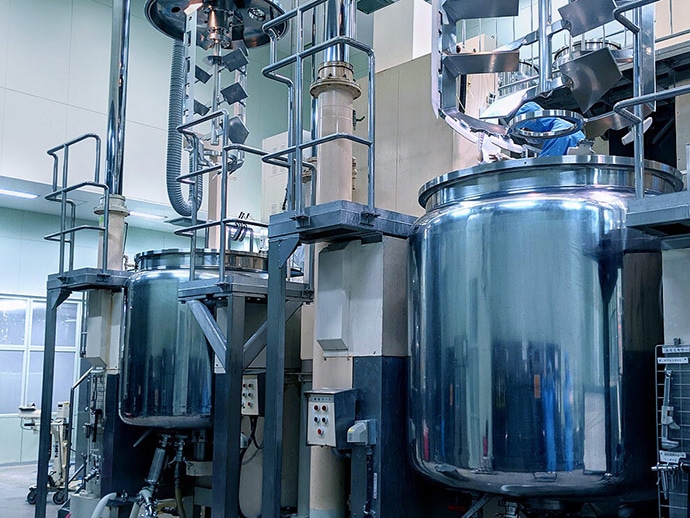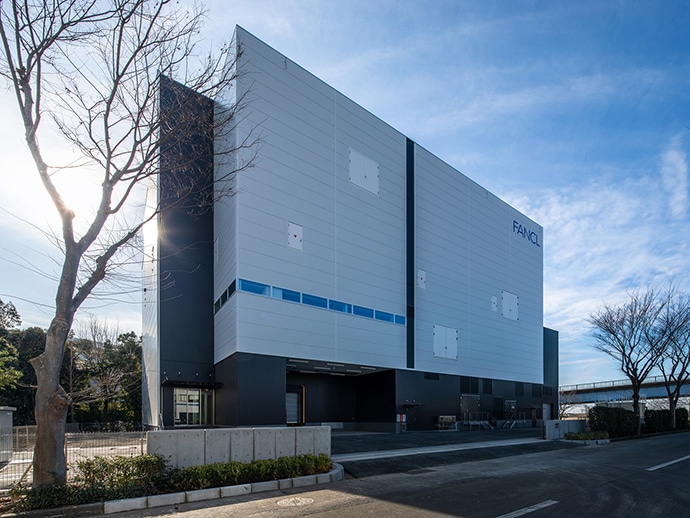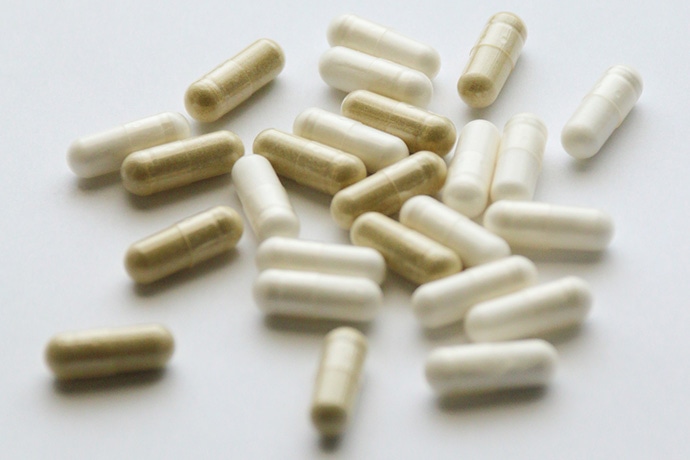We are working to conserve limited water resources through efforts to reduce our overall water consumption, as well as ensuring its effective use.
Initiatives Report
Recycling water resources and reducing water consumption
In a given year, the FANCL Group uses more than 100,000 cubic meters of water, about three-quarters of which is used at production sites. The water is procured from public water supply systems that are drawn from rivers and other domestic bodies of water.
At our production sites, tap water is filtered to remove impurities, and pure water is used as a raw material for cosmetics. Water is also used to cool raw materials that have been subject to heat as part of the production process for our cosmetics. The water that is used to absorb the heat is then cooled using a device called a chiller before being recirculated and reused for cooling. As part of the post-production process, water is also used to clean the equipment that was used.
Mild Cleansing Oil, one of our flagship products, requires large amounts of water to produce, however by consolidating its production to our Chiba Factory, we have been able to successfully reduce overall water consumption. This has also led to improved production efficiency and the reduction of CO2 emissions.
At our Nagano Factory, we have devised a technique for reducing the amount of water that is used to produce germinated brown rice. This technique involves showering the rice in a way that facilitates germination and allows the water to be reused, thereby using less water.
The nutrient-rich water that is leftover from the germination process is then reused for agricultural and horticultural purposes.


Reducing "invisible water"
In the past, the hard capsules used to contain our supplement products were mainly derived from bovine gelatin. Bovine breeding requires large amounts of water that is used to grow the grains that the cattle feed on. The production of even 1kg of beef requires an enormous amount of water -- approximately 20,000 times the 1,800 liters of irrigated water that is needed to produce 1kg of corn. It is said that one-third of the world's freshwater resources are consumed for the purpose of livestock farming.
In addition, many populations, especially those in developing nations, are facing water shortages due to ongoing population growth, and it is predicted that by 2050, more than 40% of the world's population will suffer from severe water shortages.
Amid the threat of such global water shortages, FANCL is also working to reduce "invisible water" consumption, which refers to the consumption of water through indirect forms of use, by shifting to the use of hard capsules made from corn-derived starch.

Support for watershed forest conservation initiatives
The village of Doshi, in Yamanashi Prefecture, is a mountainous area that is rich in nature and provides water to the city of Yokohama, where FANCL's Head Office is located. The Doshi River, which originates in the Doshi mountain range and northwestern Tanzawa Mountains, also flows into Kanagawa Prefecture via the Sagami River system, which is used as the main source of tap water throughout Kanagawa Prefecture.
Doshi Village is surrounded by mountainous forests known as "green dams," but artificial forests housing tree species such as cedar and cypress require thinning and other forms of maintenance. If left unattended, such forests will eventually become overly dense, blocking sunlight and causing undergrowth to cease. When this happens, green dams lose their ability to hold water, and phenomena such as heavy rains can cause devastation resulting from sediment outflows. Since fiscal 2010, FANCL has participated in a water source eco-project known as W-eco・p (or "Wecop"), which is promoted by the Yokohama Waterworks Bureau, and has worked to support the conservation of Doshi village's watershed areas alongside participating companies located in the city of Yokohama.
